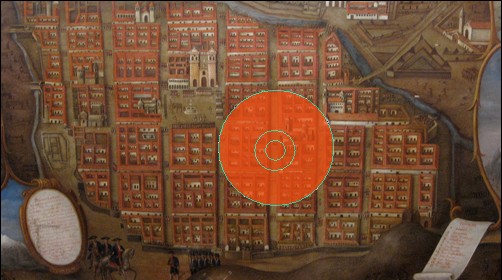
My colleague Catherine Crump testified before Congress today on location tracking and privacy, and the GPS Act that would increase legal protections for our location data. The hearing was before the House Judiciary Subcommittee on Crime, Terrorism, Homeland Security and Investigations, and you can read her written testimony submitted here.
The chairman of the committee, Rep. Jim Sensenbrenner (D-Wis.), is a strong supporter of updating the law. He opened the hearing by acknowledging that the law has not kept pace with new technologyтcertainly a truism, and certainly true with regards to location tracking in particular, but one that is good to hear accepted as fact by powerful lawmakers.
Sensenbrenner also slammed the Justice Department for not sending a witness to the hearing. The reason, he reported, is that тit lacks a clear policy position on ECPA,т referring to the 1986 Electronic Communications Privacy Act. When Sensenbrenner was reading Catherineтs bio, which included mention of her efforts to find out how the DOJ is interpreting the law in this area, he paused to say, тif you find that out, please let us know because apparently they donтt want to tell us directly.т
Testifying for the law enforcement perspective were Mark Eckenwiler, a former DOJ official now in private practice, and Peter A. Modafferi of the International Association of Chiefs of Police. Modafferiтs basic argument was that a probable cause standard for access to location data тwould make it significantly more difficult to solve crimeт because the police like to use location data in establishing probable cause for other intrusive searches.
Eckenwiler basically argued that existing law is for the most part adequate, and that historical data about a personтs whereabouts should receive a lower level of legal protection because it is based on cell-site data, which is less geographically precise than real-time tracking, where the mobile providers and authorities generally use a phoneтs GPS and/or other location techniques such as triangulation to get more precise location information.
But Matt Blaze, an expert on cell technology and location tracking, testified that the direction that the technology is taking is toward cell-site data becoming more and more precise, often to the level of GPS.
Catherine told the committee,
The warrant and probable cause requirements are essential components of the Fourth Amendment. The probable cause requirement is not high. Law enforcement merely has to have a good reason to believe that a search will turn up evidence of wrongdoing. . .
the warrant and probable cause requirements should apply across the board for both real-time and historical cell phone location data. These requirements are especially important today given the tremendous technological developments of the past 10 years that make it easier than ever to monitor and record Americansт every movementтa trend that will surely only accelerate in the future.
Catherineтs point about location tracking accelerating in the future (bolstered by Professor Blazeтs expert testimony) is an especially important one. Between cell phone location data, drones, license plate readers, surveillance cameras, and who-knows-what-other technologiesтand given the continuing exponential growth in the power of digital technologiesтwe need to write our laws with an eye to the most extreme technological possibilities for location tracking, because thereтs a good chance that those possibilities will become real in the not-too-distant future.
Letтs hope that Congress passes a law that will put our privacy on a sound footing as we move into that future, such as the


